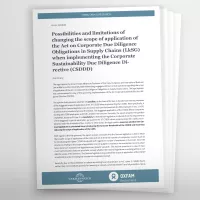
Journalisten

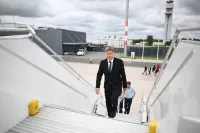
picture alliance/dpa | Sebastian Christoph Gollnow
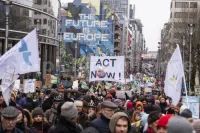
Picture Alliance
It has been frequently noted in the aftermath of the European elections that climate policy issues were less on the election agenda than in 2019. That may be true. But it is also true that a broad electoral majority is in favour of appropriate political responses to the climate crisis: support for more effective measures is polling high in many EU countries and among supporters of almost all (relevant) German parties. This is shown in several EU-wide and national surveys, as well as our own Germanwatch survey, commissioned together with DNR and WWF.
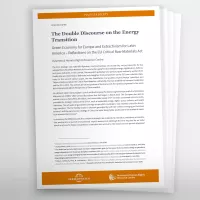
In this Opinion Paper, Fabián Andrés León Peñuela and Valentina Muñoz Bernal from the Business and Human Right Resource Center in Colombia take a look at the Critical Raw Materials Act (CRMA) that was passed by the EU in March 2024. The Act aims to ensure a secure, diversified, affordable, and sustainable supply of 37 minerals considered critical or indispensable for strategic sectors of the Union, such as renewable energy, digital, space, defence, and health industries.
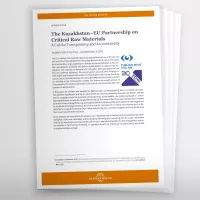
The EU’s strategic raw materials diplomacy and partnerships are on the rise, not just since the EU has adopted the Critical Raw Materials Act to secure the supply for its renewable energy, digitalisation, defence, and space industries. Kazakhstan and the EU have initiated a Critical Raw Materials partnership in 2022. The two Kazakhstani transparency experts Mariya Lobacheva and Tatyana Sedova trace how the partneship was set up without properly informing and consulting with the public.
The Middle East conflict affects the core objectives and work of Germanwatch in various ways, even if we do not work on this conflict specifically. Our deep shock at the unchecked escalation of the Middle East conflict and the humanitarian catastrophe that ensued have prompted us to comment on this conflict again after our comments of October and November 2023. With this text, we want to answer how we feel about the conflict and what we expect and demand from those responsible in Germany in terms of foreign and domestic policy.
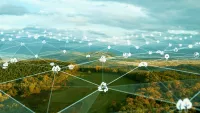
Shutterstock / metamorworks
The climate crisis and democracies under pressure – just two of the EU’s many challenges that the two-edged sword of digitalisation both alleviates and aggravates. On the one hand, the production, use, and disposal of data centres and digital devices is causing a sharp rise in greenhouse gas emissions and raw material consumption worldwide. On the other, digitalisation is required to build decentralised renewable energy systems or to transition to a circular economy.
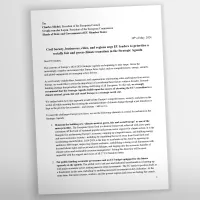
Alle fünf Jahre kommen die Staats- und Regierungschefs der Europäischen Union (EU) zusammen und legen die politischen Prioritäten für die nächste Legislatur in der Strategische Agenda fest. Ein Monat vor Annahme der Agenda 2024–2029 wendet sich ein breites Bündnis von zivilgesellschaftlichen Akteuren, Unternehmen und Organisationen an die Staats- und Regierungschefs. Sie fordern in einem offenen Brief eine Strategische Agenda für eine klimaneutrale, grüne, faire und soziale EU.

After the EU election in June 2024, the new Commission will hold the power to demonstrate global climate leadership and reshape its partnership offer. Given the strong historical ties and growing economic relations between Africa and Europe, partnerships with the African continent must remain a focus of the EU. Our policy brief provides five recommendations for reshaping the EU’s partnership offer on energy co-operation.

Preston Foster | Unsplash
In the run-up to the European elections, a broad alliance of 14 industry associations, companies, and civil society organisations has issued a joint declaration to politicians making clear that the EU's climate targets can only be achieved with a significantly increased commitment to rail transport.
